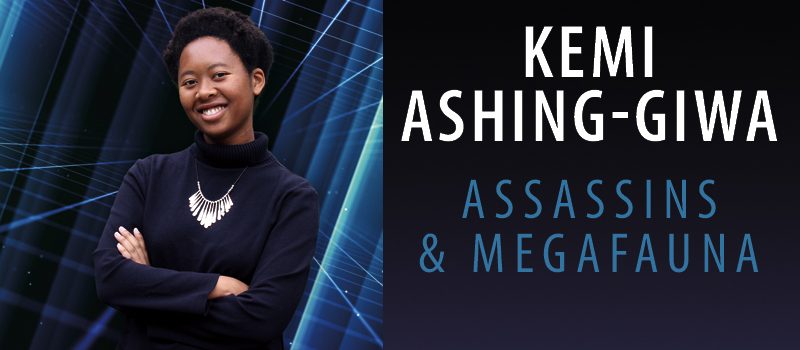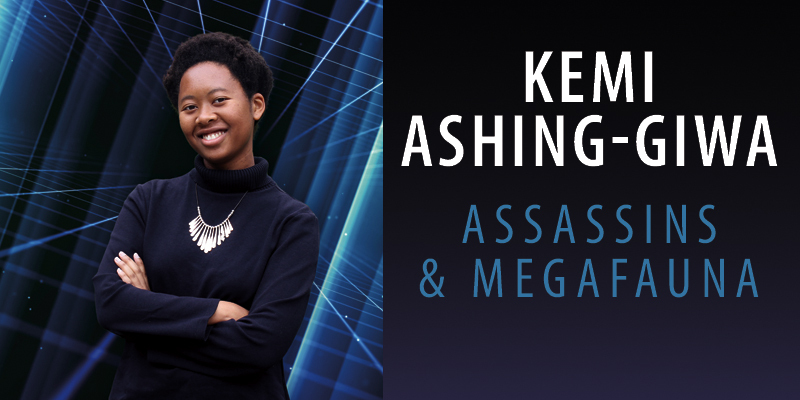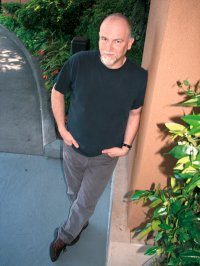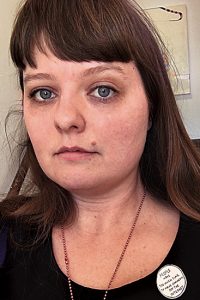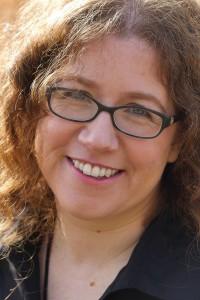Kemi Ashing-Giwa: Assassins & Megafauna
KEMI ASHING-GIWA WAS BORN August 22, 2000 in Southern California. She attended Harvard University, where she studied integrative biology and astrophysics, and is now a PhD student at Stanford University.
She began publishing short fiction with “Paper Suns” in Anathema in 2021, and in 2022 published two stories at Tor.com, “Fruiting Bodies” and “The Sufficient Loss Protocol,” followed by “The Puppetmaster” in 2023. SF horror novella This World Is Not Yours is forthcoming from Nightfire next year. Her debut novel, science fiction The Splinter in the Sky, is out from Saga this month.
Excerpt from the interview:
“My first experiences writing were with my childhood best friend. Every time we had a sleepover, we would write a story set in the same paracosm. It’s a very common phenomenon amongst children – they’ll create these incredibly elaborate, fantastical worlds. I kept up with writing through middle school and high school, as both a relaxing hobby and as a way to work through whatever issue was on my mind at the time.
“During quarantine, I feel that a lot of people realized the importance of happiness, of treasuring the little things while in the middle of this horrible global tragedy. And I spent a lot of time thinking about what I wanted the overall path of my life to be. My dream future would be half science and half writing, or some mix of the two, in whatever form that takes. I’m open to whatever the universe wants to give me.
“Before The Splinter in the Sky, I’d written eight novel-length projects in total. They were good practice, but I really learned how to write through short stories. They’re a great way to figure out what makes for a solid hook; what constitutes a nice, tight plot; and how to stick the landing at the end. After the first short story got published, I sent out a science fantasy manuscript to see if any agents might be interested. I tried so hard to emulate the traditional style of science fiction classics in it, but it just wasn’t good. In fact, it was really, really bad. I sent that story to a bunch of agents, and I received about 200 rejections. I think the fact that I sent it to so many people tells you I didn’t know a lot about querying. It is highly unlikely that there are hundreds of agents who would even be a semi-good fit for one story.
“With The Splinter in the Sky, I queried far fewer agents, and only those I thought would be really good for that book. I wasn’t trying to rush things anymore. The querying process for Splinter was relatively fast; it only took about a month. I think the fact that two agents offered at the very beginning, and that they both had so many great ideas about how to refine the story, showed that I had learned a lesson or two from my first foray into the querying trenches.
“The Splinter in the Sky is about a tea specialist who lives with her sibling on a remote lunar station. When her sibling goes missing and her lover is assassinated, she schemes her way to the heart of the empire that devastated her homeland. Held captive in the eponymous floating capital, she embarks on a mission to get revenge, save her sibling, and maybe, even, secure her people’s freedom. I got really into tea over the pandemic; that was part of the initial idea. Plus, assassins are cool.
“During the pandemic I thought, ‘I need to make sure I know what’s going on in the world at all times!’ So I subscribed to The New York Times and LA Times and Time. As soon as I woke up, I would read every news article that was in my inbox, and then I would log into class, and as soon as my classes were done, I would watch the news. Then I would do my homework, work on whatever research project I had going on, and when I got into bed, I would doomscroll for about four hours.
“Both of my parents are immigrants, so a lot of the things that I know about Black American history I’ve learned through classes. Much of it, though, has been on my own – especially when it comes to the real tragedies. For example, when most teachers talk about slavery, they pull up a picture of an enslaved person, and then they say something along the lines of, ‘Well, slavery was horrible – it was really quite sad.’ Then they just move on.
“So during quarantine, I wasn’t only learning more about the tragedies occurring right now, but I was also uncovering more about past trauma, whether it concerned my ancestors in Nigeria or in the Caribbean, or in the United States. It was a lot, and I needed a way to process everything. Speculative fiction has always been a way for me to do that. I don’t enjoy writing realistic or contemporary fiction as much, because I feel I’m a little too close to the problem. When I was working on Splinter, I was just so angry at the world, and I needed distance from the issues I was writing about.
“Splinter was cathartic in so many ways. I was able to process many of the things I was absorbing, and much of what I was feeling, through the main character. Writing this novel also helped me remember that, despite all the suffering and all the ongoing injustice, there’s still so much joy and beauty in the world. No matter what happens, we all have family, we all have friends, and we all have people in our lives that care about us – I hope. Life is complicated. A lot of times, it’s ugly, but there are bright, beautiful spots, too.
“I wanted to write a really dark, bleak, angry book; that was my initial plan. As I dug deeper into the story, I realized that my main character needed help from other people – just like we all need help and support from others, at the risk of sounding trite. And because of the protagonist’s interactions with her core group of friends and allies, I ended up with a richer, more emotionally complex novel.
I wanted The Splinter in the Sky to be a serious book – or, I felt that, in order to be taken seriously, in order for this book to mean something, that it had to be painful. The idea that suffering means more than joy or happiness is a common misconception in the genre, or perhaps in writing generally. I didn’t necessarily want to write something more emotionally varied when I was starting out, but it became that way organically. In trying to build a realistic world and cast of characters, I realized no one is just grim and angry and sad all the time. Rage and sorrow do not comprise the totality of life.
“I started off as a pantser, so my earliest form of writing was simply to open up a Google doc and start typing. Splinter is the first book I went back to and revised. Normally, when I finished a story, it was done forever, and I almost never thought about it or looked at it ever again. I always had an idea of where the story would start and what the ending would be, and of the major beats that would happen in between those points, but besides that, I made up the connective tissue as I went. Splinter is also the last book I wrote without an outline. These days, my writing process is far more organized; it has to be! Traditional publishing has influenced the way that I write on every level, but it’s important to me that I maintain the excitement I felt when I was just doing this for the fun of it.
“My editor, Amara Hoshijo, has done a lot of work with crime fiction and thrillers, and that expertise was invaluable, especially when it came to pacing and stakes. Although the fate of an entire solar system hangs in the balance, the enormity of the novel’s stakes was often understated. The main character, Enitan, is incredibly self-contained, and because she constantly suppresses her feelings to fulfill her next objective, ensuring that the stakes were reflected in her emotionally was one thing we focused on in the editing process.
“Typically, I don’t conduct a lot of extra science-related research for my writing. I enjoy going down rabbit holes as much as any other writer, but if I wanted to write something that was more strictly scientific, then I would do the actual work that I’m supposed to do for grad school. Generally, any science that’s on the page is something I’ve studied, not necessarily something I’ve done a lot of extra research for – that tends to be more humanities-oriented. For most things that I write – unless it’s explicitly science fantasy – if it’s on the page, I try to make it at least plausible, even if I don’t go into depth describing the minute details.
“There are definitely elements of horror in The Splinter in the Sky. There aren’t necessarily monsters or demons or what have you – although there are dangerous megafauna that the characters encounter. But the protagonist is surrounded by enemies, by people who absolutely loathe her, who don’t understand her and don’t care to, who exoticize her, who think of her as another fascinating specimen in the imperial menagerie – but certainly not human. So even though I wouldn’t call this novel horror, Enitan’s situation is certainly horrific.
Interview design by Stephen H. Segal
Read the full interview in the July 2023 issue of Locus.
 While you are here, please take a moment to support Locus with a one-time or recurring donation. We rely on reader donations to keep the magazine and site going, and would like to keep the site paywall free, but WE NEED YOUR FINANCIAL SUPPORT to continue quality coverage of the science fiction and fantasy field.
While you are here, please take a moment to support Locus with a one-time or recurring donation. We rely on reader donations to keep the magazine and site going, and would like to keep the site paywall free, but WE NEED YOUR FINANCIAL SUPPORT to continue quality coverage of the science fiction and fantasy field.
©Locus Magazine. Copyrighted material may not be republished without permission of LSFF.


